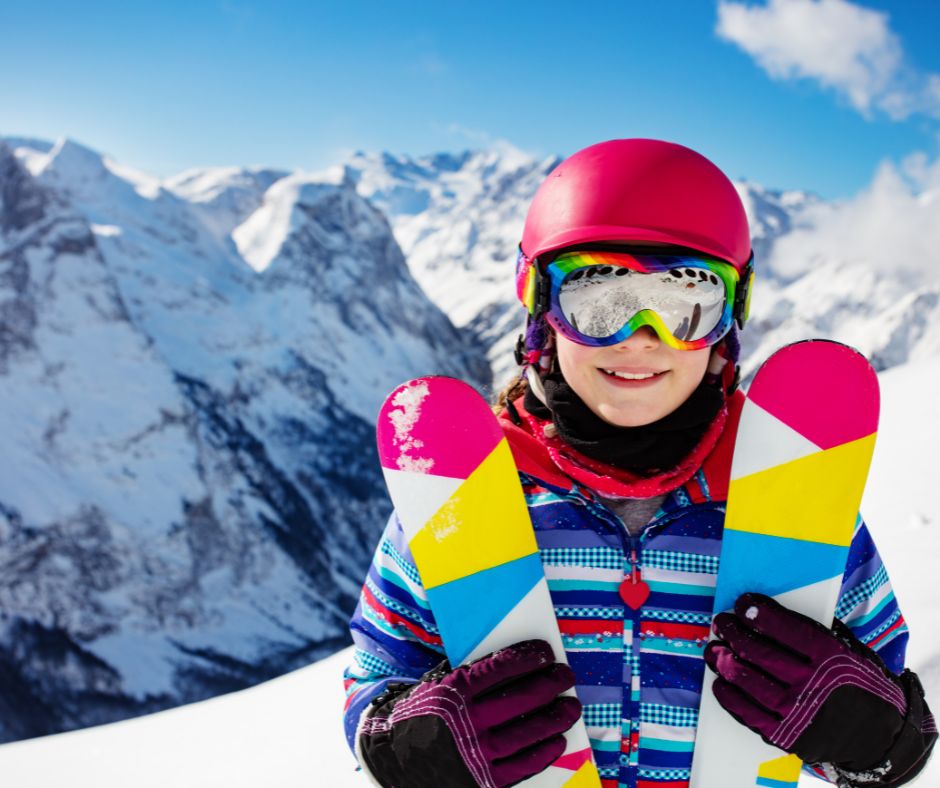
19 Dec Preventing Snow Blindness: Causes, Symptoms, And Treatment
Imagine the stunning beauty of a snow-covered landscape, glistening under the sun’s rays. But did you know that this winter wonderland can pose a hidden threat to your eyes? Snow blindness, caused by overexposure to UV rays reflected off snow or ice, is a temporary condition that affects outdoor enthusiasts in snowy environments. Whether you’re skiing down the slopes or trekking through icy terrain, your eyes are at risk. Read our blog below to learn more about preventing snow blindness.
Causes And Symptoms Of Snow Blindness
Snow blindness occurs when the cornea, which is the clear front surface of the eye, gets damaged by ultraviolet (UV) radiation from the sun. It’s like getting a sunburn on your eyes! Prolonged exposure to bright sunlight without proper eye protection increases the risk of developing snow blindness.
When you have snow blindness, your eyes can become quite uncomfortable. You may experience watery eyes, as if you’re crying, even though you’re not sad at all! Another symptom is a gritty sensation in your eyes, as if there’s sand stuck in them. And here’s the scary part: you might temporarily lose some or all of your vision!
Imagine trying to navigate through a snowy landscape with blurry vision – it would be like trying to walk blindfolded! That’s why it’s essential to protect your eyes when spending time in snowy environments.
Treatment Options For Snow Blindness
1. Protective Eyewear
The best treatment for snow blindness is prevention through wearing protective eyewear that blocks UV rays. By shielding your eyes from harmful ultraviolet radiation, you can significantly reduce the risk of developing snow blindness. Sunglasses or goggles specifically designed for outdoor activities in snowy environments are highly recommended.
2. Resting In A Dark Room
When already affected by snow blindness, resting in a dark room can aid in recovery. This helps to minimize further strain on the eyes and allows them to rest and heal naturally. Applying cold compresses on closed eyes can also provide relief by reducing inflammation and soothing any pain or discomfort.
3. Over-The-Counter Eye Drops
Over-the-counter lubricating eye drops can be used to alleviate dryness and discomfort associated with snow blindness. These drops help moisturize the eyes and provide temporary relief from symptoms such as itching, redness, and irritation.
It’s important to note that while these treatment options can help manage the symptoms of snow blindness, they are not a substitute for professional medical advice. If symptoms persist or worsen, it is recommended to consult an eye care professional for further evaluation and guidance.
Preventing Snow Blindness: Tips And Techniques
To prevent snow blindness, it’s crucial to take the necessary precautions. Here are some tips and techniques to keep in mind:
1. Wearing Sunglasses Or Goggles With 100% UV Protection
Protecting your eyes from harmful UV rays is essential in preventing snow blindness. Make sure to wear sunglasses or goggles that provide 100% UV protection. This will shield your eyes from the intense sunlight reflected off the snow.
2. Choosing Wraparound Styles Or Side Shields
Opt for sunglasses or goggles with wraparound styles or side shields. These designs help block out peripheral sunlight, reducing the risk of snow blindness. By providing additional coverage, they minimize the chances of UV rays reaching your eyes from different angles.
3. Applying Sunscreen Around The Eyes
In addition to wearing protective eyewear, applying sunscreen around the eyes can further reduce UV exposure. The delicate skin around the eyes is susceptible to sunburn and damage. Don’t forget to apply sunscreen specifically designed for sensitive areas like this.
Remember, prevention is key. By following these tips and techniques, you can protect your eyes and enjoy outdoor activities in snowy conditions without any discomfort or risks associated with snow blindness.
By taking these precautions, you can reduce the risk of long-term damage caused by snow blindness and maintain optimal eye health throughout your life. While most snow blindness cases resolve on their own, severe and untreated instances of snow blindness can lead to long-term damage to your eyes. If you think your eyes have been affected by snow blindness, book an appointment at Dr D’Orio Eyecare, by visiting https://drdorioeyecare.com/book-appointment/ or calling us at 416-656-2020 for our Toronto location, or 416-661-5555 for our North York location.



